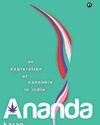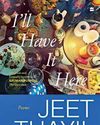Fool others about your intellect … or are they fooling you about theirs?

SHEEPISHLY, Kevin Adkins admits that when he’s insecure, he uses big words to appear smarter.
“Only when I need to impress the person,” says the 41-year-old.
“Dates with women? Definitely. At the grocery store? Not so much.”
Recently, when flirting with a stylist at the barber shop, he asked her to give him a “symmetric ” haircut, instead of just telling her to trim it evenly. And when he gave an attractive woman directions, he made a point of telling her that the two options they discussed were “equidistant” rather than simply saying that both were about the same distance.
Adkins isn’t alone. Researchers have documented how people try to appear smarter or use criteria to decide whether others are smart. Many judgements are rooted in stereotypes, yet they persist.
“PEOPLE LOVE TO TAKE shortcuts when forming impressions of people,” says Bogdan Wojciszke, a professor of social psychology in Poland who studies how people form impressions of other people. “We tend to make judgements based on easy cues, without thinking too much.”
Because people know, consciously or unconsciously, that others form impressions of them after a glance or short conversation, they may work harder to give the “right” impression so they’re judged favourably. There may be no validity to these impressions, yet people value others’ perceptions.
“It’s almost a game that two people are playing,” says Eric R. Igou, social psychologist at Ireland’s University of Limerick, who also does studies on the subject. “If the observer, person B, doesn’t have the same theory, it can backfire.” Person A may be perceived as pretentious instead of intelligent, he adds.
Want to look smarter? Here are some tips from the latest studies.
Esta historia es de la edición April 2017 de Reader's Digest India.
Comience su prueba gratuita de Magzter GOLD de 7 días para acceder a miles de historias premium seleccionadas y a más de 9,000 revistas y periódicos.
Ya eres suscriptor ? Conectar
Esta historia es de la edición April 2017 de Reader's Digest India.
Comience su prueba gratuita de Magzter GOLD de 7 días para acceder a miles de historias premium seleccionadas y a más de 9,000 revistas y periódicos.
Ya eres suscriptor? Conectar

ME & MY SHELF
Siddharth Kapila is a lawyer turned writer whose writing has focussed on issues surrounding Hinduism. His debut book, Tripping Down the Ganga: A Son's Exploration of Faith (Speaking Tiger) traces his seven-year-long journey along India's holiest river and his explorations into the nature of faith among believers and skeptics alike.

EMBEDDED FROM NPR
For all its flaws and shortcomings, some of which have come under the spotlight in recent years, NPR makes some of the best hardcore journalistic podcasts ever.

ANURAG MINUS VERMA PODCAST
Interview podcasts live and die not just on the strengths of the interviewer but also the range of participating guests.

WE'RE NOT KIDDING WITH MEHDI & FRIENDS
Since his exit from MSNBC, star anchor and journalist Mehdi Hasan has gone on to found Zeteo, an all-new media startup focussing on both news and analysis.

Ananda: An Exploration of Cannabis in India by Karan Madhok (Aleph)
Karan Madhok's Ananda is a lively, three-dimensional exploration of India's past and present relationship with cannabis.

I'll Have it Here: Poems by Jeet Thayil, (Fourth Estate)
For over three decades now, Jeet Thayil has been one of India's pre-eminent Englishlanguage poets.

Orbital by Samantha Harvey (Penguin Random House India)
Samantha Harvey became the latest winner of the Booker Prize last month for Orbital, a short, sharp shock of a novel about a group of astronauts aboard the International Space Station for a long-term mission.

She Defied All the Odds
When doctors told the McCoombes that spina bifida would severely limit their daughter's life, they refused to listen. So did the little girl

DO YOU DARE?
Two Danish businesswomen want us to start eating insects. It's good for the environment, but can consumers get over the yuck factor?

Searching for Santa Claus
Santa lives at the North Pole, right? Don't say that to the people of Rovaniemi in northern Finland